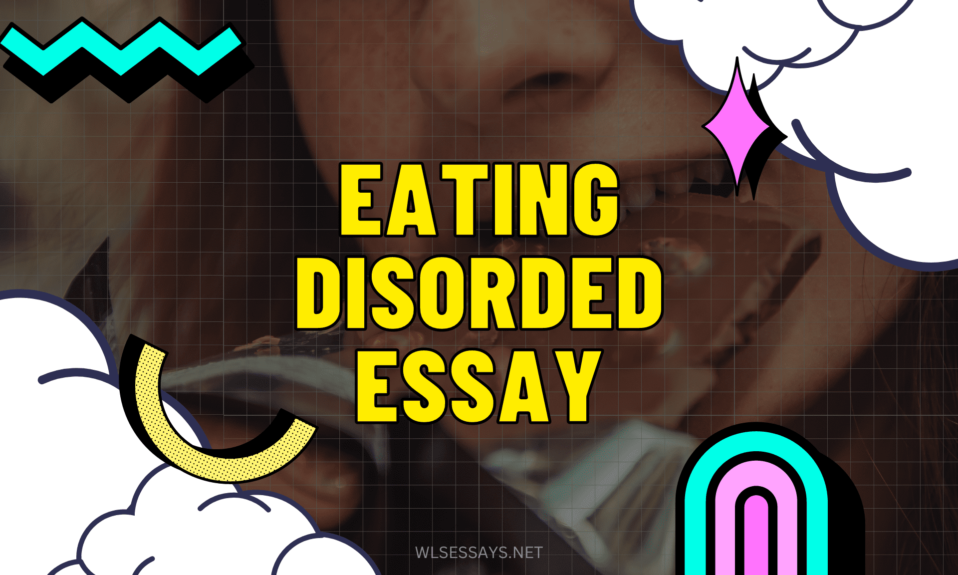Modern science conditionally divides all dependencies into chemical and psychological. Eating disorders are usually defined in the second group. With this kind of dependence, a person makes up for the lack of certain emotions or suppresses them with one or another harmful activity. Anorexia, bulimia, and compulsive overeating are typically considered eating disorders. All three types of disorders are socially acceptable addictions (unlike alcoholism or gambling), which can occur in one patient in parallel or replacing each other.
Compulsive Overeating
These are uncontrolled bouts of overeating, unrelated to the satisfaction of hunger, after which the person experiences a sense of guilt. A person who overeats thinks that he or she is trying to get away from problems. As a result of compulsive overeating, excess weight appears.
Bulimia
With bulimia, bouts of gluttony are completed by acts of forced cleansing of the stomach. Bulimia sufferers vomit to avoid gaining excess weight and, most importantly, feelings of guilt. Some patients also resort to excessive physical exertion or hunger marathons.
Anorexia (Anorexia Nervosa*)
This is a partial or, in severe form, complete refusal to eat. More often, the disease develops in such a way that gradually leads to a complete rejection of food. Patients are characterized by a distorted perception of their body: they may mistake their own thinness for obesity.
In addition to anorexia nervosa, there is also primary anorexia associated with hormonal dysfunction, drug-induced anorexia caused by taking appetite-suppressing drugs, and mental anorexia, a possible product of paranoid abnormalities. Severe forms of anorexia in individual cases are attributed to psychotic disorders (Babicz-Zielińska et al.).
People tend to think that gluttony is one of the seven Christian mortal sins and one of the most understandable and justifiable human weaknesses. Nevertheless, compulsive overeating is not a whim but a serious violation, which a person cannot cope with independently. In such states, actions are performed on the basis of an irresistible attraction, as if under compulsion. Performing these actions leads to temporary satisfaction, and failure to do so leads to dissatisfaction and anxiety.
The media is not the only reason for the emergence of eating disorders. However, because of it, there is a proliferation of dietary culture, the idealization of unattainable body images, obsession over thinness, and the idea, socially fixed for centuries, that a woman is, first of all, a body.
There is a lot of material about eating disorders in the media. One of the reasons for the growth of public interest is the tragic outcome that these diseases can have. In 1982, the death of Karen Carpenter, a popular singer and TV show host, shocked the nation. The prevalence of such problems among adolescent girls and young women is also of serious concern (Nikolić et al.).
Practitioners now realize that the similarities between anorexia and bulimia may be as important as the difference between them. So, anorexic sufferers, after making sure of weight loss, may begin to overeat and some of them, thus, may develop bulimia. Conversely, people with bulimia sometimes develop anorexia.
The number of people exposed to anorexia and bulimia is growing incredibly, and thinness is becoming an obsessive national idea. People tend to lose as many kilograms as possible and as a result, reach a dangerous weight. There are two possible nutrition schemes: restriction of consumed foods, and gluttony, followed by gastric cleansing.
To conclude, the main features of anorexia nervosa and bulimia are the desire to become thin, the fear of gaining weight, a prejudiced attitude to food, cognitive disorders, psychological problems, and health problems, including the absence of menstrual cycles. Thus, eating disorders are serious mental conditions that need to be addressed more often in order to shed light on this issue.
Works Cited
Babicz-Zielińska, Ewa, et al. “Eating Disorders: Problems of Contemporary Civilisation – A Review.” Polish Journal of Food and Nutrition Sciences. 63. 133-146. 2013. 10.2478/v10222-012-0078-0.
Nikolić, Maja, et al. MEDICAL NUTRITION THERAPY IN MANAGEMENT OF EATING DISORDERS. Acta Medica Medianae. 48.
Not Sure How to Write Essays on Eating Disorders?
Writing an essay on an everyday topic can be very difficult, let alone an essay about eating disorders. This topic is not only technically difficult but also psychologically. Most of the world’s population knows personally what these diseases are. And it’s not very pleasant to write about such things. And if you are not confused by the topic itself, then you may be distracted from work by the lack of free time. But, in the end, you still want to have a good assessment. What to do in such a situation?
You can ask for help from one of your friends or use the help of someone who can definitely provide you with a good rating. This is the characteristic of the professional student assistance service. When you access such sites, you guarantee yourself:
– Fast essay writing.
– Exact coverage of the subject.
– Good grade.
– Honest and safe cooperation.
In addition, you will save your precious time for yourself. You will not need to be nervous and stay awake at night. Your evenings will only belong to you. Have a professional write your essay on eating disorders and sleep well. Feel free to go to a professional service and order help with writing an essay.










